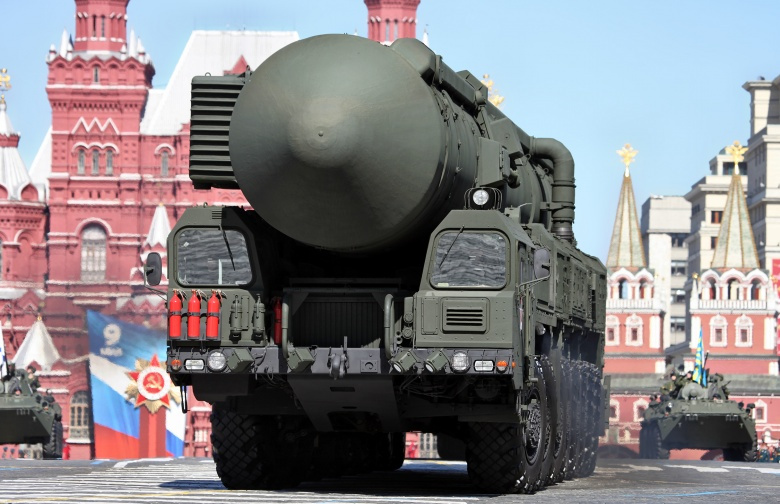Countdown to War: The Coming U.S.-Russia Conflict

The United States and Russia may be unwittingly stumbling down a path to deeper confrontation and even war, cautioned two prominent American national-security experts at a panel in Washington, D.C. Tuesday. Graham Allison, director of Harvard University’s Belfer Center for Science and International Affairs, and Dimitri K. Simes, president of the Center for the National Interest and publisher of this magazine, suggested that while leaders in both countries may not intend to escalate their disagreements on matters like the Ukraine crisis, poorly structured decision processes, opposing goals and divergent narratives can still produce conflict. “Even as they state that they don’t want a confrontation—with full conviction,” said Simes, “they are seeking a victory without war...Both sides show little inclination to compromise on what they consider to be fundamental and what they believe they are entitled to.”
Worse, warned Allison, Russia may believe that the use of threats and military force will produce the best outcomes in a serious confrontation with the West. “Russia has escalation dominance,” said Allison, and “from a Russian point of view,” shaping the confrontation in such a way “sends a very powerful message, especially to the Europeans.” Allison and Simes suggested that a diplomatic resolution is still very possible—“we are not predicting World War Three,” in Simes’ words—but that “this is not [a] time in the U.S.-Russian relationship when you want to be too polite about stating what the danger is.”
Allison, who had held responsibility for coordinating the Pentagon’s policy toward Russia as an assistant secretary of defense during the Clinton administration, argued that Russia’s competitive strengths vis a vis the United States and its European allies are principally military, and further that Russians have told him that they believe that the Europeans won’t fight “for anything,” while the United States has been worn out by more than a decade of warfare. For the United States, meanwhile, Russian action in the Baltic states—which are NATO members—would create enormous political difficulties, noting that if one asked most ordinary Americans what they thought about the prospect of sending American troops to go to war with Russia over Estonia, “maybe they’ll get out their iPhones and search for ‘Estonia.’”
Simes added that the national-security bureaucracy in Russia would be unlikely to offer Russian president Vladimir Putin a “vigorous debate” on policy approaches in the event of a confrontation, and that there would be little space for dissenting voices, particularly in a political system where all officials effectively serve at the pleasure of Putin and where there are few opportunities for officials who fall out of the political system. The human tendency to see the world as we wish to see it could, in this case, produce an echo chamber, making it less likely that policymakers would identify lurking dangers.
No comments:
Post a Comment